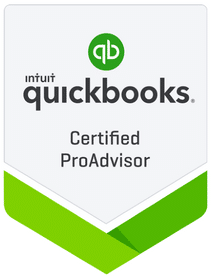- Patrick Roney
- (877) 503-8607
Follow Us :
Follow Us :
Proledge
May 27, 2025
Cash flow is, basically, the backbone of any business. That’s what makes it so important. In many instances, good cash flow management can literally save your business, or help you keep it afloat. There are also circumstances in which it can help you grow your business, making it possible for you to reach new heights. This financial instrument is crucial for your business. Read this article to see exactly why.

It might seem harsh to put it that way, but good cash flow management is truly necessary if you want your business to survive in the competitive market. The U.S Bank has concluded that 82% businesses fail because of cash-flow related issues. Don’t let your business be part of that statistic. Invest in professional help and you’ll get to see why managing your cash flow is so important.
In order to make good business decisions, you need to know the inflow and outflow of money. If you’re constantly keeping an eye on your cash flow, then you will always be aware of your financial capabilities and the chances of something catching you off guard will be lower.
Is it important right from the start that we make the distinction between cash flow vs revenue. A lot of business owners look at the amount of inflow they get a month and make the mistake of thinking of it as revenue. Let us be very clear in this: cash flow is not revenue. Cash flow is the amount of money moving in and out of a business, while revenue represents the income that a company receives regularly. It is the total income a business earns from sales before expenses. In the cash flow vs revenue debate, it is the latter that represents available money.
Let’s break down the costs of a business. Typically, an economic agent will have a series of fixed and variable costs per month. These can include rent, utilities, salaries, loans and other such expenses. Keeping accurate records of your financial transactions will help you ensure all of these costs are covered. A good image of your ins and outs will help you organize your finances in such a way that it will seem like these costs pay for themselves.
Let’s take an example. Let’s assume you’re the owner of a leather atelier where you produce high-quality fashion items made of natural leather. For the following month you have 35 orders to complete, which means you’re expecting a certain amount of leather to be delivered to you, so that you can do your part in this chain. Let us now assume that your leather provider didn’t do a good job of overseeing his cash flow and did not have enough money to pay his workers, which makes it impossible for him to get you the leather that you need. This puts you in an uncomfortable situation. If you don’t deliver your orders you won’t get paid and then you might find yourself in the situation of not being able to pay your expenses. Poor money management leads to a large number of issues.
Imagine now that your leather distributor had someone to oversee his cash flow. If that were the case, he wouldn’t find himself incapable of paying the workers’ salaries. But if you’re only looking at what comes in and you spend that money, you might not have it when expenses start coming. And that can delay your process and the income of money, making it all the more difficult to recover. Do you now see why it is the leading case of failure? We won’t go into more operational details and crisis management, but you get the idea. This example was meant to showcase just how easy things can go south if you’re not managing your cash flow.
You can contact us anytime if you have questions or encounter a problem with your bookkeeping program.
We have seen how the poor management of financial capabilities can break a deal. We will now see how a good one can secure the deal. Finding yourself in a situation in which you can’t do your activity because you lack the cash needed is truly disappointing, but having the opportunity of a lifetime knock at your door and you having to say no to it because you don’t have the case is worse. Fear of missing out is real and it will leave you frustrated and undetermined.
Let’s do yet another imagination exercise, this time from this perspective. You are a minimarket retailer in a small city. Your competition didn’t take cash flow seriously and, within a year of activity, it went bankrupt. You’ve been in business for one year and have been waiting for the opportunity to expand and now, with your competition gone, is like the time has finally come. You take a look at your cash flow reports and conclude that you can open a second location. That’s because you have been anticipating this moment for some time and invested your resources accordingly, making it possible for you to now do the things you envisioned. Obviously, this is a happy scenario, but imagine if you were indifferent to cash flow management like your competition. Not only would that mean the impossibility to expand, but it might signal a future bankruptcy.
There are many ways in which you can attract investment. You can polish your business plan presentation, you can do a better illustration of your product or service, you can present all kinds of statistics and they’re all good methods, but none of them come even close to the impact positive cash flow reports have on investors. They look into a lot of documents, but cash flow statements have the power to bring the meeting to a fruitful conclusion.
That’s because investors and money lenders are interested to see that you have the financial capability to handle loan repayments. Based on the cash flow statement they can also determine if your business is worth investing in. A steady stream of cash and wise spending will skyrocket your business appeal and show investors and money lenders that you’re a great investment.

We talked in the previous section about the importance of having a positive cash flow. How do you get that, you wonder? By making good business decisions, and how do you make good business decisions? By having a cash flow management to indicate your financial capabilities so that you can make the best decision regarding your activity.
When it comes to cash flow, everything is intertwined. If you monitor your income and outcome of cash, you can make better financial decisions which, in turn, will maximize your potential, because it will indicate your financial capabilities. Having a finance management system means you can take every step guided by your previous one, on a steady and clear path. Making business decisions without consulting your cash flow documents and without conducting means you’re taking step after step blind, without seeing what was in front or after you. It might sound poetic, but when you translate that to the business world, most of the times it foresees bankruptcy and failure. Business is all about risk, but it has to be a calculated one, and one of the best instruments to calculate it is this.
So far we’ve talked about the importance of this financial instrument and, if we were to list all of the ways in which it can benefit your business, one article would not suffice. Let us now get into something more practical. If you’ve understood just how crucial it is for you to take the aspect of cash flow into account, then you might find these strategies useful:
We know you might be tempted to assume the best in terms of income and minimize your expenses, but that’s extremely detrimental in business (and in life in general, but especially in economics). A precautionary and assumed forecast gets you the results we talked about before. It is that steady and constant flow that attracts the investors, that allows you that expansion and that keeps you running smoothly.

This is a key aspect if you want to keep track of all the money that goes in and out of your business. To do that, you can offer early payment discounts, enforce late payment penalties or use automated invoice follow-ups to speed up the process. When in doubt, you can always contact our experts to find ways to conduct better cash flow management.
Paying your expenses early is as beneficial as getting your income early. Keep control of accounts payable by negotiating better terms when you sign contracts and try to get an extended term where negotiation allows it. Always pay what’s most essential first, keeping track of your bills from the most important ones to the least and ask your suppliers if they offer discounts on early payments. We can help you with bookkeeping services anywhere in the US.
When it comes to businesses, the golden rule is to spend less and earn more. In other words, you should cut unnecessary costs and optimize your earnings. Easier said than done, we know, but this will be your launch pad into the world of successful businesses.
This one might be controversial for some, but having an emergency fund is the smart and wise choice to make. Investing your business’s resources back into your activity is good, but you need extra cash to keep you covered in case anything happens. In more colloquial terms, do not keep all of your eggs in one basket.
This one might differ from business to business, but a general rule is that the more stock you hold, the more cash is tied up. Try to reduce excess inventory, use just-in-time inventory and monitor demand trends so that you can minimize your costs and take advantage of opportunities when they come.

We can’t conclude this article without mentioning some of the most common mistakes business owners make when dealing with cash flow management. Here are some of them and how to avoid them:
One of the first and most common mistakes business owners make is not forecasting their cash flow. This can lead to unexpected shortfalls and extra expenses. How to avoid it: Use historical data and expected income/expenses to plan ahead.
We’ve already tackled this one, but you should always keep in mind not to put an equal between the two. How to avoid it: Focus on inflows and outflows and keep an eye on where your money goes
Every business can experience a slow season as much as it can go through a prosperous season. If your field of work is known for having a high discrepancy in this regard, then you should take that into account and not just “hope for the best”. How to avoid it: Plan ahead for seasonal changes by saving surplus cash from peak periods
That brings us to the end of this article. The world of finance is vast and cash flow management is just one of the many aspects you need to account for when starting or managing a business. Doing it will offer you a competition advantage and will also give you the edge when it comes to survival on the driven market. If you want to learn more about how to make it out alive of the starting stage and how to thrive check out our blog for valuable information that is sure to make you a better business owner or manager.


Fill out the form below to sign up to our Blog Newsletter and we’ll drop you a line when new articles come up.

Although it’s probably not your first priority, and it’s not exactly the flashiest of business endeavors, in 2026, a significant percentage of your venture’s profitability potential will be made possible

The financial fortitude of modern businesses is often tied to the movement of money, in and out of companies, over a specific amount of time. Cash flow, in the contemporary

The financial fortitude of modern businesses is often tied to the movement of money, in and out of companies, over a specific amount of time. Cash flow, in the contemporary

In the world of bookkeeping, there is nothing more important than accuracy. The financial statements of a business are only as reliable as the records behind them. Which is why

Since you are reading this post, we can deduce that you are an Amazon seller, and a significant percentage of your profitability metrics are influenced by the cash-flow-sensitive operations required

One of the most understated elements behind the long-term financial development of Texas-based companies is bookkeeping. Maybe it’s not the flashiest part of a long-term business strategy, and perhap ….
ProLedge is a bookkeeping services firm.
Copyright © 2024 All rights reserved.